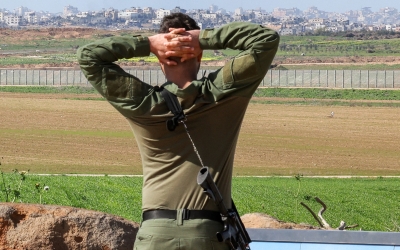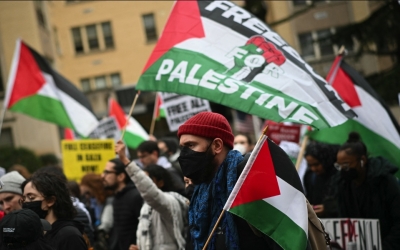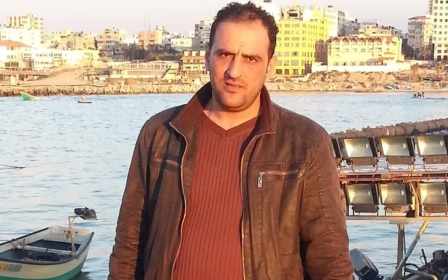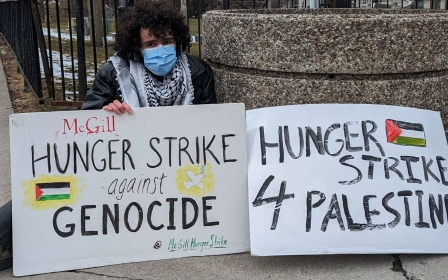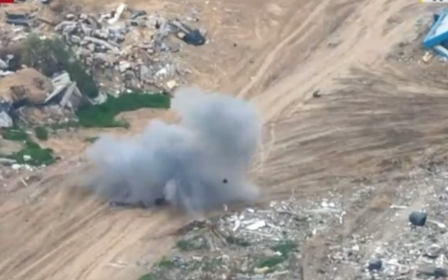War on Gaza: UN adopts resolution demanding ceasefire after US abstains
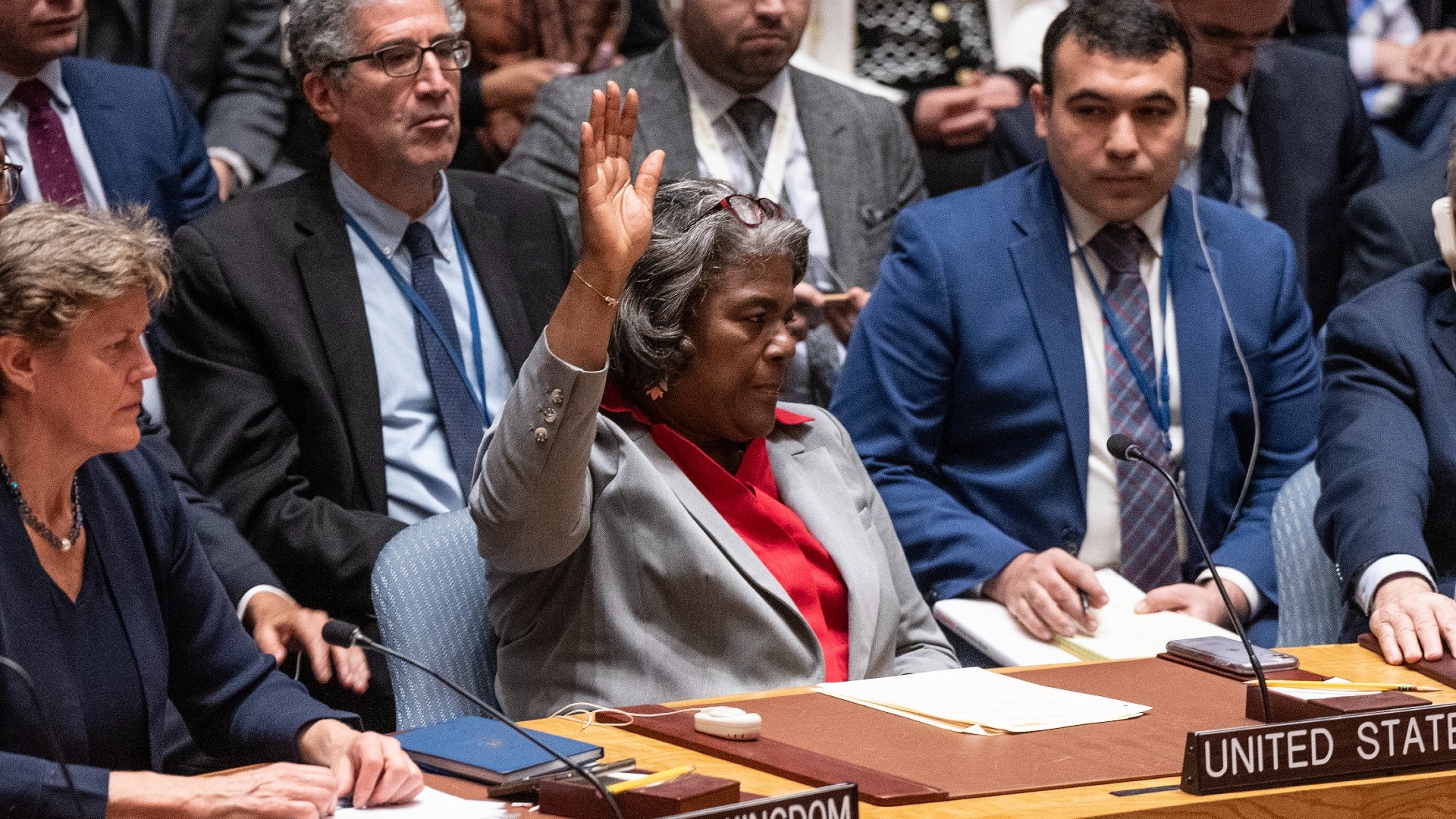
The UN Security Council passed a resolution on Monday calling for an "immediate ceasefire" in Gaza for the remainder of the Muslim holy month of Ramadan, after the United States abstained from the vote, declining to veto it.
The resolution, which was backed by 14 nations except the US, also called for the release of all Israeli captives held in Gaza and "the urgent need to expand the flow" of aid into the besieged enclave.
Amar Bendjama, Algeria's ambassador to the UN and a sponsor of the resolution, welcomed the breakthrough and said the Security Council was "finally shouldering its responsibility as the primary organ responsible for maintaining international peace and security".
"This bloodbath has continued for far too long," he said.
Monday's vote came as Israeli leaders continued to reiterate their intent to press on with a full-scale ground offensive on Rafah, the southern border city where about 1.5 million Palestinians are currently sheltering.
New MEE newsletter: Jerusalem Dispatch
Sign up to get the latest insights and analysis on Israel-Palestine, alongside Turkey Unpacked and other MEE newsletters
Since the 7 October attack, more than 90 percent of Gaza's 2.3 million residents have been displaced and at least 32,000 have been killed, mostly women and children.
Despite mounting warnings from aid agencies and the international community that an assault on Rafah would be a catastrophe, Israeli Prime Minister Benjamin Netanyahu has maintained that Israel can't achieve its goal of a"total victory" against Hamas without storming the border city.
Following the vote, Netanyahu cancelled a planned high-level delegation visit to Washington in protest, and accused the US of "retreating" from what he said had been a "principled position."
Israeli National Security Adviser Tzachi Hanegbi and Strategic Affairs Minister Ron Dermer, a key Netanyahu confidant, were scheduled to arrive in Washington to hear American counter-proposals for the Rafah offensive.
Immediately after the vote, White House National Security Council spokesman John Kirby told reporters that the abstention did not represent a "change in policy" by the administration.
"There is no reason for this to be seen as some sort of escalation," he said. "Nothing has changed about our policy. We still want to see a ceasefire. We still want to get all hostages out. And we still want to see more humanitarian assistance get in to the people of Gaza."
Washington's decision to abstain marks weeks of back-and-forth criticism between Israel and the Biden administration.
Since December, Biden and other senior US officials have been challenging Israel over its conduct in the war, but Monday's vote marks the US's most formal criticism.
The US has cast three vetos against calls for a ceasefire. Separately, Washington also blocked an amendment calling for a ceasefire that Russia had tried including on a Security Council resolution in December.
Last week, the US signalled it was ready to temper its support for Israel at the body, putting forward a resolution to recognise "the imperative" of an "immediate and sustained ceasefire".
That text was nevertheless blocked by Russia and China, which along with Arab states criticised it for stopping short of explicitly demanding Israel halt its campaign in Gaza.
Resolution talks
The US has been floating a Gaza ceasefire resolution since February as a way to pressure Israel, with Washington increasingly frustrated by what Biden has labelled Israel’s “indiscriminate bombing” of Gaza and failure to craft a post-war plan for the besieged enclave which the UN has warned is on the brink of famine.
Frank Lowenstein, the former special envoy for Israeli-Palestinian negotiations in the Obama administration, previously told MEE that the US’s stepped-up criticism at the UN marked “a shot across Bibi’s [Prime Minister Benjamin Netanyahu] bow,” adding that "the Israelis are extremely sensitive about the UN. They view it as a hostile body and rely on the US to protect them there.”
The resolution has been the work of the council's non-permanent members, who negotiated with the United States over the weekend to avoid another veto, according to diplomatic sources who expressed a certain optimism at its passage.
Unlike Friday's text, the call for a ceasefire in the new resolution is not linked to ongoing talks, led by Qatar with support from the United States and Egypt, to halt fighting in return for Hamas releasing hostages.
The new text also deplores "all attacks against civilians and civilian objects, as well as all violence and hostilities against civilians, and all acts of terrorism".
Israel has criticised the Security Council for previous resolutions that have not specifically condemned Hamas.
The Hamas-led attacks on southern Israel killed roughly 1,200 people and resulted in 250 hostages being taken back into Gaza.
In response, Israel launched a bloody offensive on the besieged enclave that has reduced most of the Mediterranean coastal strip to rubble.
A recent UN-backed report warned that famine was imminent in northern Gaza, a crisis many have accused Israel of causing by using starvation as a weapon of war.
Middle East Eye delivers independent and unrivalled coverage and analysis of the Middle East, North Africa and beyond. To learn more about republishing this content and the associated fees, please fill out this form. More about MEE can be found here.


